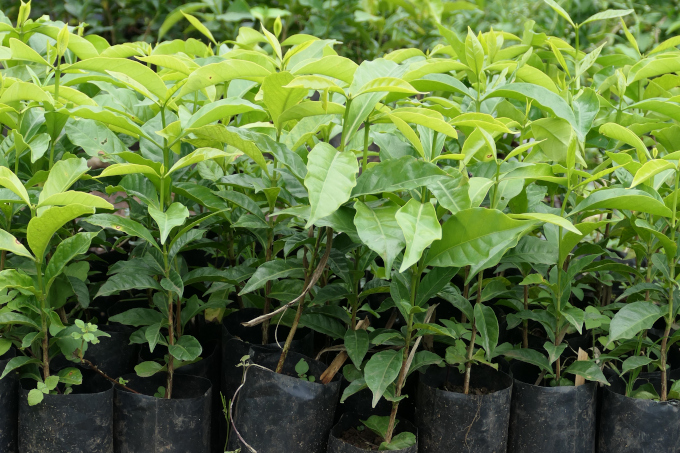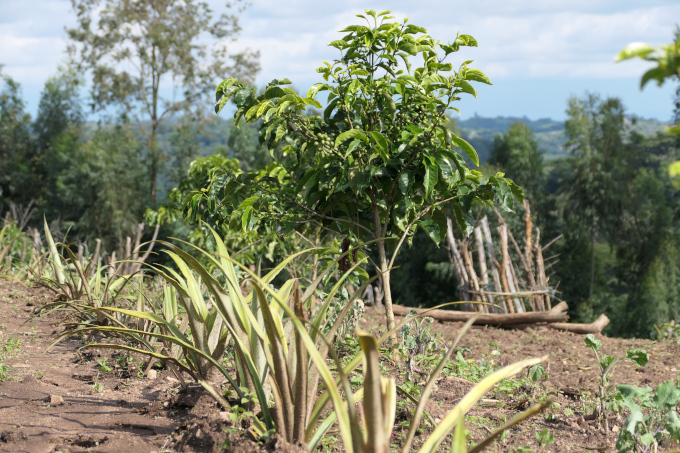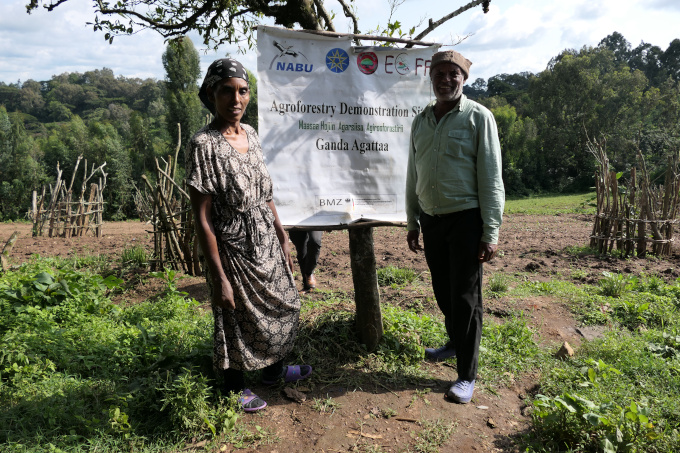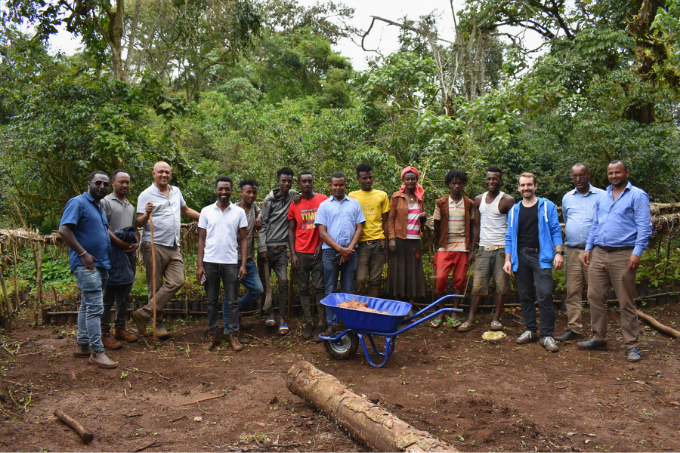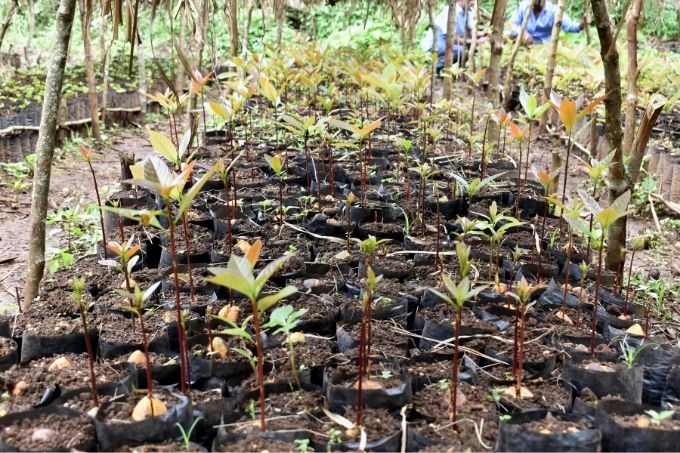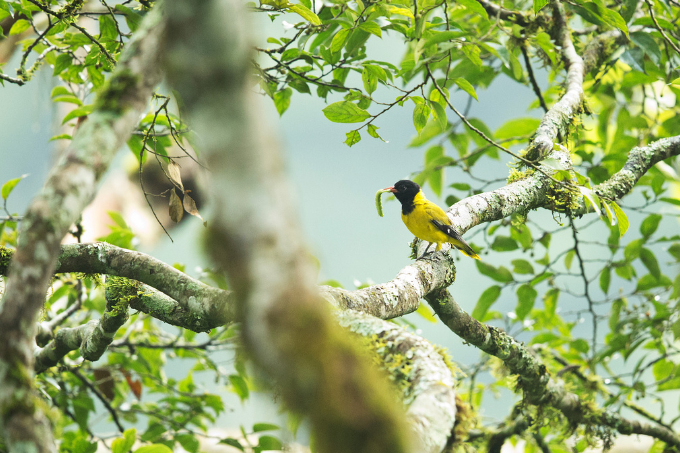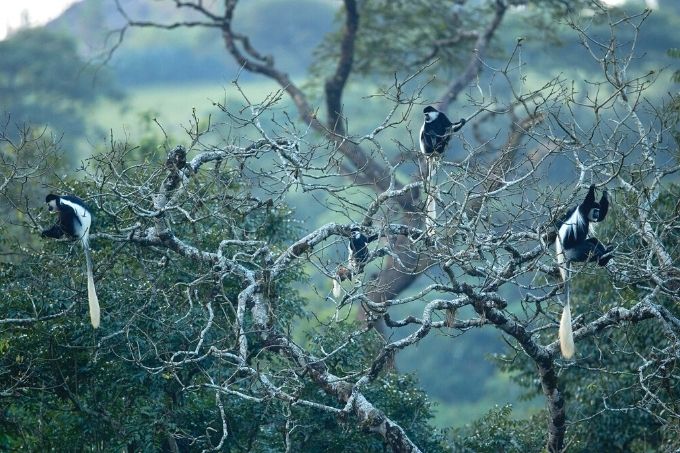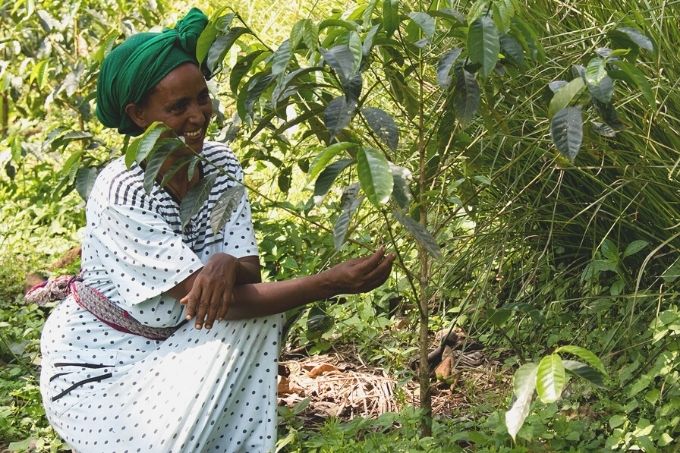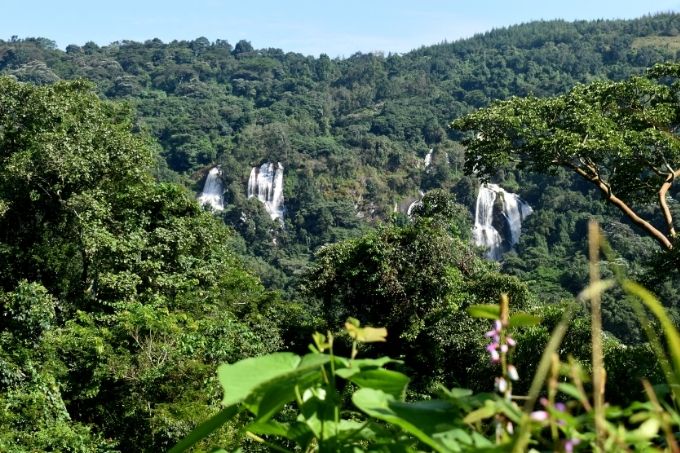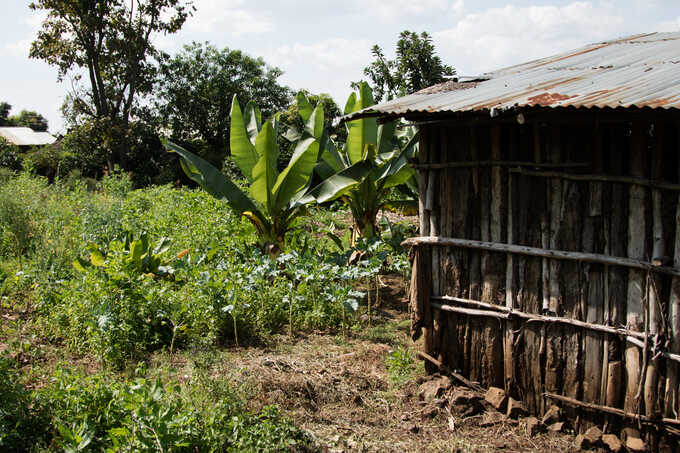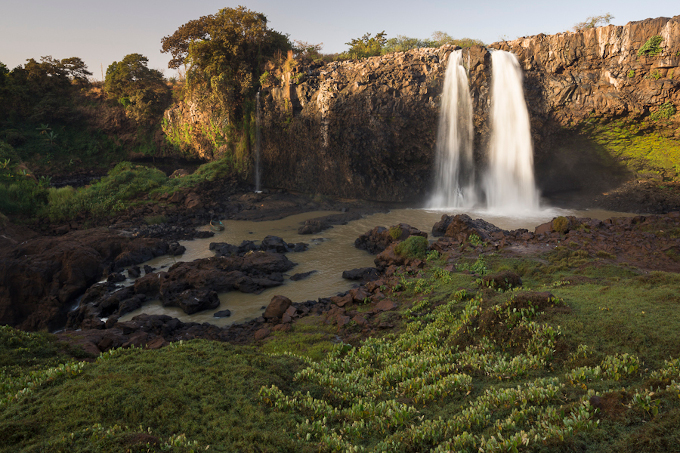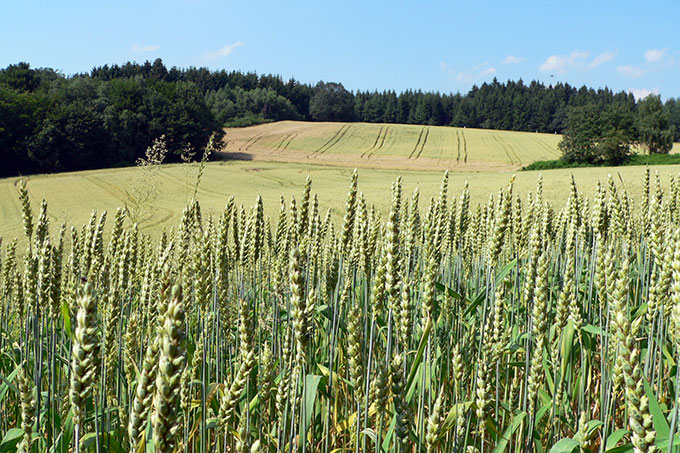Empowering Communities
Coffee as model for ecosystem-friendly regional development
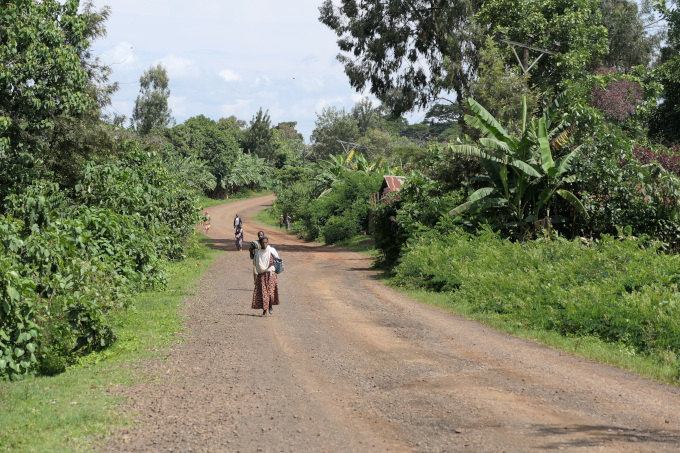
Focus on empowerment: The communities in Yayu Coffee Biosphere Reserve are involved in local reforestation efforts - photo: NABU
Yayu Coffee Forest Biosphere Reserve, located in the Illu Babora Zone of Oromia Regional State in South-western Ethiopia, is one of the country's last Afromontane forest areas that are home to wild Arabica coffee. Local communities’ income is based on small-scale agriculture and forest products, with coffee accounting for 70 percent.
Although the region has best conditions for coffee cultivation, yields remain significantly below the national average and an enormous potential for quality development is unexploited. The pristine forests of the region are pressurised by agricultural expansion, infrastructure development and illegal settlements.
This is our project approach
The project Empowering Communities aims at contributing for Yayu to be known as a socially and ecologically sustainable model coffee region where development and nature conservation are balanced. To achieve this, NABU and the Environment and Coffee Forest Forum (ECCFF) work particularly with farmers, women and young people for capacity building and income diversification with sustainable value chains and agroforestry system .
Moreover, disturbed and degraded forest areas are stabilised by afforestation and sustainable participatory forest/ resource management . In order to secure the biosphere reserve’s functionality, its management is being capacitised.
The project is implemented by NABU Ethiopia in partnership with the Environment and Coffee Forest Forum (ECFF) and supported by the German Federal Ministry for Economic Cooperation and Development (BMZ) and NABU.
-
Young coffee plants: In Yayu Coffee Biosphere Reserve, farmers learn how to grow and harvest coffee more sustainably - photo: NABU
-
What is an agroforestry system? This area for example: In an agroforestry system, trees and shrubs are combined with arable crops - photo: NABU
-
Recently inaugurated! This agroforestry demonstration area in Yayu Coffee Biosphere Reserve was created as part of the project "Empowering Communities" - photo: NABU
-
Formerly unemployed youths are contributing to forest restoration as junior entrepreneurs - photo: NABU / Jonathan Böcker
-
Young community members are setting up tree nurseries for income generation - photo: NABU / Jonathan Böcker
-
The pristine forests offer habitat to many different animal and plant species... - photo: Mathias Putze
-
... such as the black-and-white colobus monkey - photo: Mathias Putze
-
Yayu\'s communities are trained to contribute to a sustainable use of forests (PFM) - photo: Mathias Putze
-
The impressive water falls of the biosphere reserve - photo: NABU / Jonathan Böcker
Project facts
Project title
Empowering Communities: Coffee as model for ecosystem-friendly regional development
Country/Region
Yayu Coffee Biosphere Reserve, Ethiopia
Period
December 2020 – January 2024
Partners
Environment and Coffee Forest Forum (ECFF) and Oromia Regional State
Sponsored by / Supported by
The project is supported by the German Federal Ministry for Economic Cooperation and Development (BMZ)
With this project we are contributing to the following SDGs
SDG 8, SDG 12, SDG 13, SDG 15
More details
Project setting
The Yayu Biosphere Reserve is one of the few remaining areas of intact Afromontane forests in Ethiopia. The area has been declared UNESCO biosphere reserve in 2010 but management structures are yet to be established. The local population’s income is low and unemployment rates, especially among youths, is high.
The Yayu ecoregion, located more than 650 km from the capital Addis Ababa, comprises highlands characterised by dense forests with up to 40 percent forest cover. The project works in the Woredas (districts) Hurumu, Alge-Sachi, Yayo and Bilo Nopha.
Approach
The project is made up of four different components. Capacity development for coffee farmers, forest preservation and income generating activities, setting-up of local structures for the biosphere reserve and multiplication and learning activities.
The project aims to strengthen local communities by using the Participatory Forest Management (PFM) approach to hand responsibility and ownership of forest resources to the local population while supporting them in creating better or additional income through higher-revenue coffee collection in the forest areas, planting of cash crops (banana, avocado, herbs), as well as setting up self-sustained plant nurseries.
Planned achievements
- Coffee farmers are experiencing a significant and sustainable increase in quality and quantity of yields.
- Youths in the area are founding new start-ups to have sustainable income.
- Women are able to increase their household income through ecological and sustainable farming of cash-crops.
- Sustainable Participatory Forest Management is established.
- Communal agroforestry action plans are developed and running.
- Members of the communities are actively engaging in reforestation and rehabilitation of their local forest systems.
- The biosphere reserve management is set-up and working.
- Forest user and women producer groups are linked to neighbouring regions groups at Kafa Biosphere Reserve.
MORE INFORMATION
The project Green Change builds the resilience of people and nature in times of climate crisis. Our work in the Yayu Biosphere Reserve supports sustainable land use, the planting of old varieties and the empowerment of women and youth through generated income. more →
An ecosystem is a complex of living organisms. NABU focuses on restoring ecosystems to their original state and important regulatory functions such as carbon sequestration. Ideally, by creating conditions in which the ecosystem can recover on its own. more →
NABU supports the creation, establishment and effective management of protected areas as part of our international activities. A special emphasis lies on UNESCO biosphere reserves, however, not exclusively. more →

